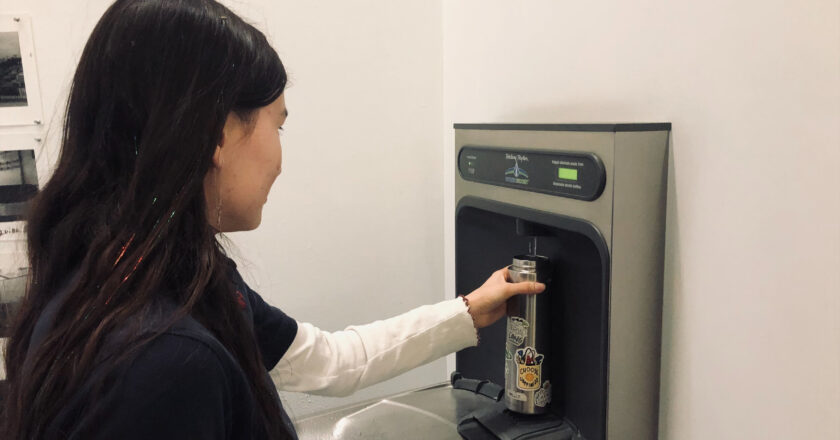Although the California fires that raged and engulfed entire swaths of the Los Angeles suburbs are no more, they are still a stark reminder of the urgent climate crisis we are facing. Climate change is a significant cause of this widespread destruction, and it’s high time we all took action. Many people across the United States send aid to people suffering from these fires, but only a small percentage are actively working to prevent further damage. That small percentage is working to promote climate activism.
“The Earth cannot talk for itself,” GAEA Co-Leader Katie Martin ’25 says. “Being there and being able to inform people to really understand what’s going on can help prevent climate change.”
As one of the leaders of GAEA (Germantown Academy Environmental Action Club), a club devoted to promoting Earth awareness, Martin and co-leaders Ashley Wang ’26 and Nina Sager ’26 have been undertaking various climate-related initiatives to protect the Earth with many other club members under the guidance of Ms. Sarah Kesten and Mr. Dick O’Hern.
“I’d say the creek-watching initiative is something that we do with GAEA and Earth Sciences, which is just basically like examining environmental changes and tracing those back to how climate change has been going on in our area,” Sager says.
In response to the devastation caused by the wildfires, GAEA created a fundraising campaign to support healing in the aftermath and raise awareness about it in the Germantown Academy community. Students across the Upper School donated over a thousand dollars in cash to provide humanitarian aid to the communities and people impacted by the fire.
Additionally, education is a powerful tool in the fight against climate change. By raising awareness and understanding about the causes and effects of these disasters, measures can be taken to prevent this devastation from repeating.
How? Germantown Academy is on the opposite side of the United States from the California crisis, and most of what we know about the fires does not come from first-person experiences. The reason that we know so much about the fires is from the press.
Staying informed allows us to recognize the significant impact caused by these fires and identify ways we can assist those affected. Ultimately, the essence of wisdom lies in being aware of what we know and don’t know. By embracing this understanding, we can better equip ourselves to help others in need.
Still, climate activists face myriad challenges. Supporting a successful project requires careful planning, extensive research, broad participation, and an appealing goal. This is not to mention the various setbacks that could happen with any project. Still, those motivated to make an impact will make an impact (e.g. Greta Thunberg).
Germantown Academy has provided a class on Environmental Science to prepare students to address these global climate issues in the future. Mr. O’Hern and Mr. Phil Rittenhouse teach this science elective to students who wish to learn more about combating climate change by teaching them to make informed choices about their daily actions, such as reducing meat consumption and driving less.
“My hope is that I can try to help kids understand that every single thing we do in our lives is a choice,” Mr. O’Hern said. “Consumption has nothing but negative. It’s hard to make positive. It’s my hope that kids will start to think about more sustainable choices. For example, you can drive a little bit less, eat a little bit less, and consume dairy a little bit less because growing animals greatly affects the environment.”
Additionally, Germantown Academy currently has various sustainability practices in effect. The Preserve near Wissahickon Creek is one of the best and most apparent examples of sustainability. The school protected an essential part of the Wissahickon Watershed by preserving the wetland.
Furthermore, sustainability is omnipresent within the academic section of the campus. All water that flows in the bathrooms is “gray water,” an environmentally friendly source of rainwater.
While Germantown Academy has various sustainability practices in effect, there is room for improvement. Perhaps the most challenging aspect to control is the school’s carbon footprint, which measures the amount of carbon dioxide and other carbon compounds emitted by consumption. Germantown Academy’s sheer size makes it difficult to limit this greenhouse gas, although the school strives to do so.
The natural disaster in California is only one of our generation’s challenges. Rising temperatures directly correspond to increasing sea levels that will undoubtedly inundate coastal areas, including cities such as Shanghai, New York, Cairo, London, and Rio de Janeiro. Natural disasters such as tornadoes and hurricanes will wreak far more havoc than they have previously.
As Katie Martin brilliantly said, “The Earth cannot speak for itself.” If our generation continues to ignore the effects of climate change and does not speak for the Earth, we may doom our future.

